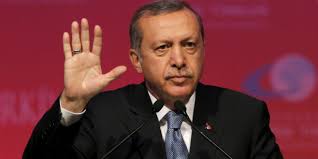Turks woke Monday to a country once again under single-party rule, after the Justice and Development Party regained its parliamentary majority in a surprise election sweep that strengthens the hand of Erdogan.
Turks woke Monday to a country once again under single-party rule, after the Justice and Development Party regained its parliamentary majority in a surprise election sweep that strengthens the hand of President Recep Tayyip Erdogan.
The AKP party founded by the divisive strongman, who has dominated Turkish politics for more than a decade, won 49.4 percent of the vote to secure 316 seats in the 550-member parliament with nearly all votes counted, easily enough to form a government on its own.
The 61-year-old Erdogan may now be able to secure enough support for his controversial ambitions to expand his role into a powerful US-style executive presidency.
The AKP lost its majority for the first time in 13 years in June, when pro-Kurdish People's Democratic Party (HDP) entered parliament for the first time. Growing conflict with Turkey's largest minority remains a key challenge for the new government.
Erdogan said voters had chosen "unity and integrity" in his first comments after the polls, although analysts said his surprise victory was largely down to mounting concern over renewed violence with Kurdish militants and a surge in bloody Takfiri attacks.
"Our people clearly showed in the November 1 elections that they prefer action and development to controversy," Erdogan said in a statement.
Prime Minister Ahmet Davutoglu welcomed the result, saying there were "no losers, but winners".
Speaking to thousands of people who waited for hours in the cold to hear him speak from the balcony of the AKP headquarters in the capital, the premier vowed to protect the human rights of all of Turkey's 78 million inhabitants.
"You saw the dirty games played in our country, and you have changed the game," Davutoglu said.
The political landscape has changed dramatically in Turkey since June, with the country even more divided along ethnic and sectarian lines.